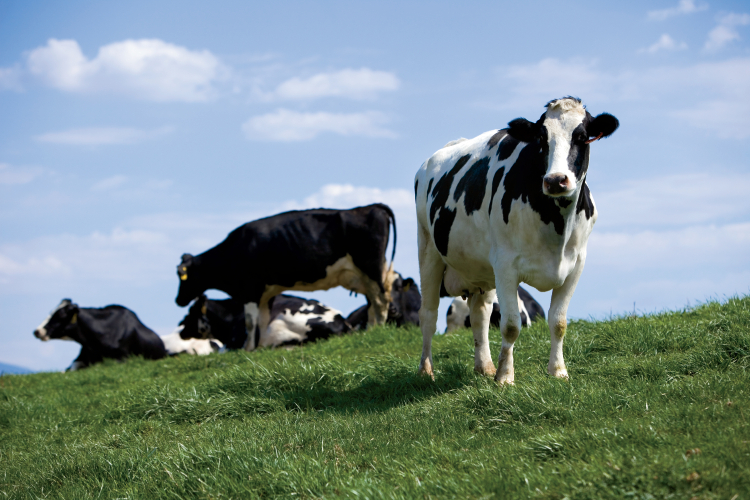Home > Michigan > Michigan Crops & Livestock > The Art of Dairy Export
The Art of Dairy Export
In partnership with: Michigan Department of Agriculture & Rural Development

A Michigan dairy facility’s high-quality milk powder has reached gold star status in the eyes of importers.
As a result, Continental Dairy Facilities, LLC adopted gold star branding for its logo and slogan: “Farms, People and Technology Achieving Gold Star Quality.”
“That was coined by our employees,” says Steve Cooper, chief operating officer and manager of Continental Dairy Facilities. “The reason we came up with that is the importers in Asia started asking for the ‘gold star powder.’ In Asia, the gold star is synonymous with high-quality powder.”
In operation since 2012, Continental Dairy Facilities earned the 2014 Michigan Agriculture Exporter of the Year award from the Michigan Department of Agriculture and Rural Development. In 2013, the cooperative exported 75 percent of its nonfat milk powder product to 14 countries, including Algeria, Mexico, China and Vietnam. Worldwide market influences lowered that share to about 40 percent in 2014, yet the plant’s powder production grew with domestic demand, Cooper says.

(a process that disperses fat evenly throughout) at Continental Dairy Facilities in Coopersville.
Select Milk Producers, the nation’s fifth-largest dairy cooperative, owns Continental Dairy Facilities in small-town Coopersville outside of Grand Rapids. The facility’s 80 employees produce cream and condensed milk for domestic food makers of ice cream, yogurt and more. They also produce shelf-stable, nonfat dry milk to serve both domestic and international demand for use in cheese, ice cream and infant formula. In foreign countries, the product may be rehydrated for drinking milk.
The plant uses 4 million pounds of Grade A milk daily, equivalent to about 464,000 gallons, Cooper says. Approximately 95 percent of the plant’s milk comes from Michigan farms.
“Our producers really do a very good job of producing high-quality milk,” he says. “This allows us to make a high-quality finished product in the powder.”
![Michigan Milk [INFOGRAPHIC]](https://eadn-wc01-4177395.nxedge.io/wp-content/uploads/2015/03/Screen-Shot-2015-03-31-at-3.41.57-PM-740x572.png)
Export Support
Cooper and his colleagues bring the asset of export experience to the dairy facility. They teamed with a Nebraska-based international marketer and soon established solid export sales. Cooper says he also tapped into the expertise of the International Marketing Program at the Michigan Department of Agriculture and Rural Development. He advises any business that wants to enter new international markets to use this program as a resource.
“They are very knowledgeable,” Cooper says. “They’ve done a lot of trade missions. They know the countries out there looking for products, and a lot of the restrictions and requirements in those countries.”

The International Marketing Program helps agribusinesses enter into and expand export market opportunities. The program provides a spectrum of services, from teaching the basics of how exports work to finding potential buyers, says Jamie Zmitko-Somers, program manager. Staff members also provide guidance for obtaining export documentation and connecting with service providers, whether international bankers, freight and logistics firms, or legal representation.
“We are always looking for new companies who want to enter the export arena,” she says. “About
95 percent of consumers live outside of the U.S. There is a lot of opportunity for growth around the world for products and companies.”
![Michigan Milk [INFOGRAPHIC]](https://eadn-wc01-4177395.nxedge.io/wp-content/uploads/2015/03/Screen-Shot-2015-03-31-at-3.41.27-PM-740x464.png)
Milking the Michigan Advantage
Michigan’s road laws help Continental price as competitively as West Coast facilities that naturally have closer access to ocean vessels destined for Asia, Cooper says. The facility can load 10,000 more pounds of product in a container when hauling to Detroit for rail service than it can if destined for Chicago.
“By going through Detroit, our freight rate is competitive with a West Coast powder plant,” he says. “That’s why we get into China and Vietnam.”



